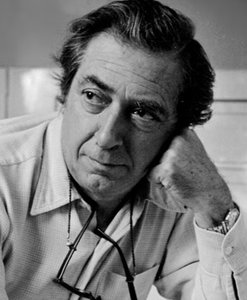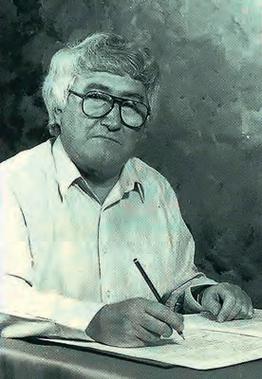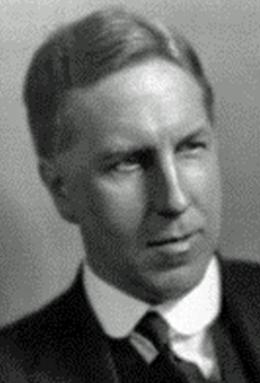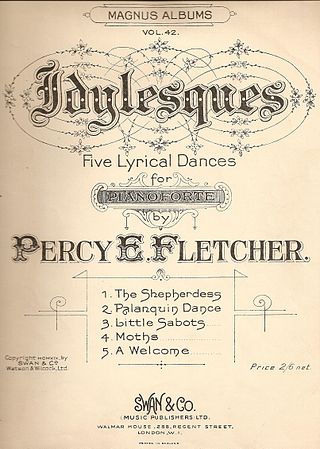
An orchestra is a large instrumental ensemble typical of classical music, which combines instruments from different families. There are typically four main sections of instruments:

Sir Granville Ransome Bantock was a British composer of classical music.

Face the Music is the fifth studio album by Electric Light Orchestra (ELO). It was released in September 1975 by United Artists Records and on 14 November 1975 in the United Kingdom by Jet Records. The album moves away from the large-scale classical orchestrated sound of the previous album, Eldorado, in favour of more "radio-friendly" pop/rock songs, though the string sections are still very prominent. The new sound proved successful for the group, for Face the Music was the first ELO album to go platinum.

"Kuolema Tekee Taiteilijan" is the third single released from the album Once by Finnish symphonic metal band Nightwish. It was released on November 24, 2004, by Spinefarm Records, together with the platinum edition of Once. The single was never released outside Japan and Finland.
A symphony is an extended piece of music for orchestra, especially one in sonata form.

The Classic BRIT Awards are an annual awards ceremony held in the United Kingdom covering aspects of classical and crossover music, and are the equivalent of popular music's Brit Awards. The awards are organised by the British Phonographic Industry (BPI) and were inaugurated in 2000 "in recognition of the achievements of classical musicians and the growth of classical music sales in the UK".

Norman Dello Joio was an American composer active for over half a century. He won a Pulitzer Prize in 1957.

Howard Lindsay Goodall is an English composer of musicals, choral music and music for television. He also presents music-based programmes for television and radio, for which he has won many awards. In May 2008, he was named as a presenter and "Composer-in-Residence" with the UK radio channel Classic FM. In May 2009, he was named "Composer of the Year" at the Classic BRIT Awards.

Sir Frederic Hymen Cowen, was an English composer, conductor and pianist.
A chorus is the part of a song that is repeated several times, usually after each verse.

Gordon Langford was an English composer, arranger and performer. He is well known for his brass band compositions and arrangements. He was also a composer of choral and orchestral music, winning an Ivor Novello award for best light music composition for his March from the Colour Suite in 1971.
The Wasps is incidental music composed by the British composer Ralph Vaughan Williams in 1909. It was written for the Cambridge Greek Play production of Aristophanes' The Wasps at Trinity College, Cambridge, and was Vaughan Williams' first of only three forays into incidental music. A later performance of the work was one of only a small number of performances conducted by Vaughan Williams that was committed to a recording.
Opera is a Western performance art which combines music and drama.

Thomas Frederick Dunhill was a prolific English composer in many genres, though he is best known today for his light music and educational piano works. His compositions include much chamber music, a song cycle, The Wind Among the Reeds, and an operetta, Tantivy Towers, that had a successful London run in 1931. He was also a teacher, examiner and writer on musical subjects.

Percy Eastman Fletcher was a British composer of classical music best known today for his brass and military band music. He also worked as a highly successful musical director at London theatres.
Neptune is the eighth and farthest planet from the Sun.
Coronation Ode, Op. 44 is a work composed by Edward Elgar for soprano, alto, tenor and bass soloists, chorus and orchestra, with words by A. C. Benson.
William Walton's music for the 1944 film Henry V has been arranged by several musicians for non-cinematic performances. The first suite was arranged in 1945 by the conductor Malcolm Sargent. In 1963 Muir Mathieson, who had conducted the music for the original film soundtrack, arranged a longer suite, and in 1988 the musicologist Christopher Palmer constructed an hour-long "Shakespeare Scenario" using most of the music Walton composed for the film.

Frederick Rosse was an English composer of light music and operetta. After studying music in Germany and elsewhere, he began his career as a musical director at London theatres. He composed suites of incidental music for several plays, orchestral suites and songs. His "Doge's March" from his music for The Merchant of Venice was his most enduring piece.
Birds are feathered, winged, bipedal, warm-blooded, egg-laying animals.
This page is based on this
Wikipedia article Text is available under the
CC BY-SA 4.0 license; additional terms may apply.
Images, videos and audio are available under their respective licenses.











